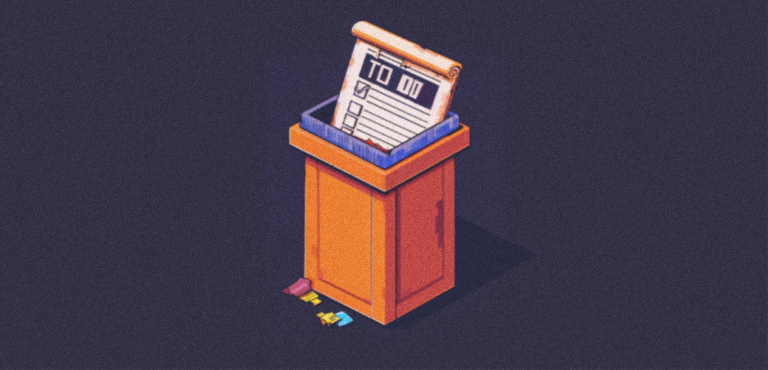
Embrace Efficiency with our Favorite AI-based Productivity Tools
From AI-powered productivity assistants and genAI to collaboration platforms, the tech world is brimming with tools poised to revolutionize our work. Our latest blog explores these advancements, illuminating the current AI powerhouses that drive peak productivity – from managing tasks and schedules, anticipating our needs, and offering proactive suggestions to optimizing our workday.
But productivity isn’t just about individual tools – it’s also about personal capacity through health, focus, and wellbeing. AI powered wearable technologies offer insights into our sleep quality, heart rate variability, and overall well-being, providing personalized recommendations to optimize our work routines. And with a glimpse into the future of productivity, we anticipate even more sophisticated AI-powered tools and biohacking wearables that will empower us to unlock our full potential.
Current AI productivity powerhouses
Microsoft Cortana (Free, Built-in on Windows): Your own Windows personal assistant, Cortana can manage your tasks and schedule, set reminders, and even find relevant information online through Bing searches.
- Future: Expect Cortana to integrate more seamlessly with Microsoft productivity tools like Office 365, offering more context-aware suggestions and proactive task management.
Amazon Alexa for Business (Subscription-based): This isn’t just for playing music anymore. Alexa for Business integrates with project management tools like Asana and Trello, allowing you to manage tasks and access project information with simple voice commands.
- Future: Imagine seamlessly adding tasks to your project management system, delegating work to colleagues, and even initiating video conferences, all through voice commands to Alexa.
Google Assistant (Free, Android and Standalone App): A familiar face (or voice) on Android devices, Google Assistant can do much more than just answer your questions. This AI assistant can prioritise tasks based on your schedule and deadlines, set reminders, and even book appointments for you.
- Future: Expect Google Assistant to leverage the power of Google Search even further, anticipating your needs and suggesting relevant resources and information as you work on tasks.
Focus and well-being powerhouses
Focus Booster (Subscription-based): This productivity app pairs with a brainwave-sensing headband (sold separately) to offer real-time feedback on your focus levels. The app utilises the Pomodoro Technique, suggesting focused work intervals followed by short breaks based on your brainwave activity.
- Future: Expect Focus Booster to integrate with other wearable health trackers, personalising focus recommendations based on your sleep patterns and overall well-being.
Whoop Strap (Subscription-based): This sleek wristband goes beyond basic fitness tracking. Whoop tracks sleep quality, heart rate variability, and recovery, providing personalised insights to optimise your sleep and workday routines.
- Future: Imagine Whoop integrating with smart home devices like thermostats and light bulbs, automatically adjusting your environment to promote better sleep and enhance focus during work hours.
Amazfit Bip (Affordable Fitness Tracker): This budget-friendly option offers basic sleep tracking and notification alerts. While not as sophisticated as other options, the Amazfit Bip can help you maintain focus and avoid getting sucked into the notification vortex on your phone.
- Future: Expect advancements in affordable wearables like the Amazfit Bip to offer more advanced tracking features, potentially incorporating basic heart rate monitoring and stress detection.
A Glimpse into the future of productivity
The future of work promises even more sophisticated AI-powered tools designed to supercharge your productivity – some in wearable form.
- Meta’s Project Cicero (Expected Release: Late 2024): This upcoming AI assistant promises to understand the nuances of your work style and industry, suggesting resources from specialised knowledge bases like Jurisprudence (legal) or Codex (developers) and streamlining workflows for specific tasks.
- Emotion Recognition AI: Companies like X.org’s Empath (In Development): These next-generation assistants may analyse your emotional state and recommend calming techniques or focus-enhancing activities using apps like Calm or Headspace.
- Augmented Reality Collaboration: Platforms like Microsoft Mesh (In Early Access) and Spatial (Available Now): Imagine collaborating on projects in a virtual workspace with colleagues around the world, manipulating 3D models in real-time using tools like Adobe Substance 3D Painter (available now).
- Enhanced Accessibility Tools: AI-powered translation tools like Google Translate and real-time transcription services like Otter.ai will break down language barriers and allow for truly global collaboration within teams.
- Biohacking Wearables: NextMind’s Mind OS (In Development): New wearables might not just track your sleep but recommend ways to improve it. Imagine a watch that gives personalized tips, like recommending bright lights to wake you up or supplements to boost energy (with doctor approval, of course). These future gadgets could be like tiny assistants for your health.
- Well-being optimization Wearables: Empatica’s Embrace 3 (Available Now): Sensor-equipped wearables are becoming more proactive in promoting well-being. They can track sleep, heart rate variability, and activity levels, suggesting personalized strategies to improve focus, sleep quality, and overall well-being.
Distilled
The future of work is one where technology adapts to our individual needs and preferences. By embracing these advancements, you can ditch the limitations of traditional to-do lists and unlock a new level of productivity and well-being. So, take control of your workday and explore the power of AI-powered productivity tools.